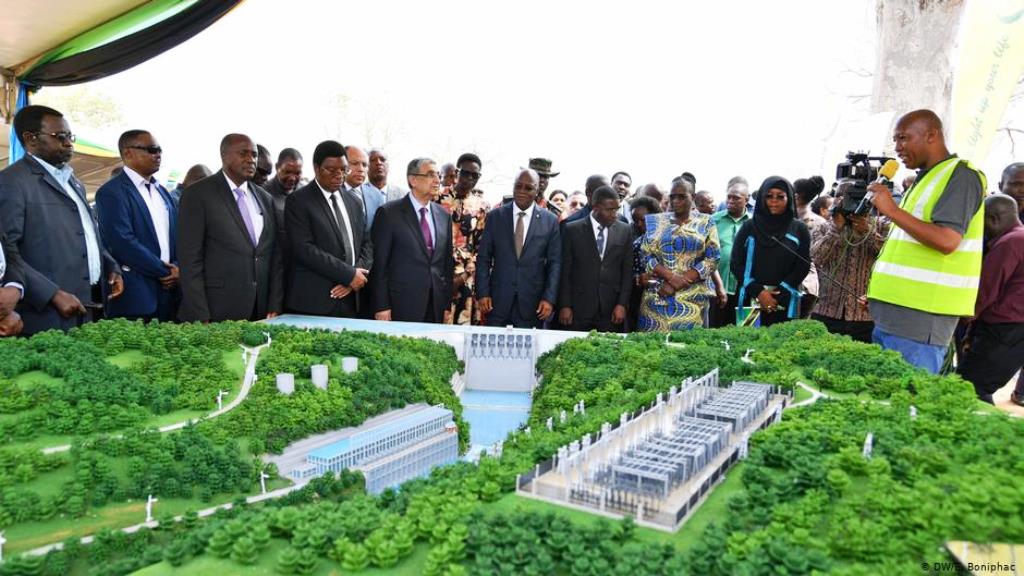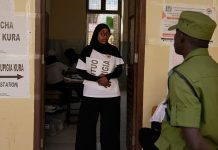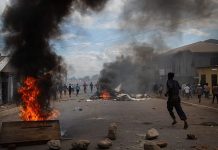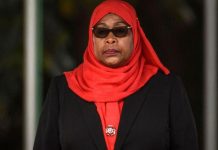Author: DEUS NGOWI
AfricaPress-Tanzania: PRESIDENT John Magufuli’s decision and unwavering stance to construct the Julius Nyerere Hydropower Project (JNHPP) is destined to put Tanzania on a comparative advantage over her East African Community (EAC) compatriots.
The hydroelectric dam, which upon completion is expected to produce 2,115 megawatts of electricity, will see the country that has just jumped to a middle-income status have a surplus of power for export, further strengthening its financial muscles.
As the EAC Secretariat has called for a validation workshop to draft a final report for consultancy services to Package EAC Power System Master Plan, it has emerged that the power sub-sector key objectives include cooperation on sectors for regional interest and development of regional interconnections.
The EAC workshop that will take place virtually on September 4th this year, will discuss the initiative in regards to the master plan and collaboration and partnerships with regional organisations working in the Power sub-sector, to foster regional power trade Cross-Border Electrification Programme.
The East African Power Master Plan is a strategic least cost power development plan for the EAC. It identifies a least cost generation and transmission expansion plan to meet the region’s growing power demand from 2013 to 2038.
The Master Plan addresses technical requirements and economic viability, taking into consideration the generation resources available in the region and opportunities for power exchange among EAC partner states as well as power exchange with other regions.
An Interconnection Code developed with the Master Plan guides design and operation of electricity interconnections in the Region. The Eastern Africa Power Pool (EAPP) has developed a gap analysis tool, to assist member power utilities assess their compliance to the Interconnection Code.
All power utilities in the EAC are members of EAPP and are working closely to be fully compliant to the Interconnection Code in readiness for regional power trade when the region becomes fully interconnected.
EAC Secretary General, speaking on the Master Plan, was of the view that implementation of projects has shown a positive improvement on power supply.
He noted that the partner states’ electricity generation capacities exceeding their peak demands will rise to significant levels, when committed generation projects in the states are commissioned from about 555MW in 2017 to about 7,480MW by 2022.
In the sector, he said, there has been an unprecedented level of resources mobilised.
Together with joint development of power projects for regional benefit, development of regional power market and exchange of technical and strategic information means that Tanzania will stand first among the other five member states and will be selling more electricity to them and beyond.
The National Development Corporation (NDC) Managing Director, Professor Damian Gabagambi expressed his optimism that when the power plant is completed and power production starts, Tanzania will have a comparative advantage in several fronts over other EAC partner states and beyond.
Professor Gabagambi said by getting the said megawatts, it means the country will have a lot to export in line with the EAC Power Master Plan and collect much more revenue than others due to the fact that it will be producing far much electricity.
“Given the size of the project, it is evident that Tanzania will have comparative advantage over the other EAC countries in the East African Power Master plan and going by the demand and supply in price determination. We will sell a lot of electricity and get a lot of foreign currency,” Professor Gabagambi added.
He was also of the opinion that availability of enough power in the country will lead to stable supply and hence construction of many industries and factories for production of goods. The goods, he said, will also be exported in the region and beyond, earning the country a lot of foreign currencies.
The Tanzania Chamber of Commerce Industry and Agriculture (TCCIA) Regional Executive Officer in Kilimanjaro region, Mr Boniface Mariki hailed President Magufuli for daring to execute the long-planned project that will result in production and supply of power in surplus of requirement.
He said the demand for power has not been met by supply, so challenges facing owners of big and small industries are enormous and will be solved by the grand project then will see Tanzania export more goods. The surplus power will then be filtered in the regional power master plan that is on the threshold of completion.
“This is actually a good project that was delayed for decades; at last we will be there soon and get enough and stable power supply for our industries, supermarkets etc. The surplus will be channeled to the other countries as outlined in the EAC Power Master Plan. We will, with no doubt emerge the biggest suppliers in the region and beyond,” said the TCCI executive.
The strategic and timely decision to construct the project along the Rufiji River, Coast Region, by a joint venture of Egyptian companies – Arab Contractors and El Sewedy Electric Co at a cost of 3.6 billion US dollars that is around 6.55tri/- will start paying off through sale of electricity internationally, but also reduce the power cost to companies, industries, institutions and individuals within the country.
The Energy Minister, Dr Medard Kalemani said recently that the government had already paid 1.19tri/- out of the total cost.
EAC has developed a Cross-Border Electrification Programme in its efforts to increase access in a cost-effective manner. It will enable border centres to access electricity from the nearest grid. The programme enables border towns to connect from the neighbouring partner state at distribution voltage when it is more economical than connecting with the grid within its own country.
The EAC Cross-Border Electrification Policy governs the implementation of the programme as well as development of shared renewable energy resources such as small hydro power projects. To further facilitate expeditious conclusion of cross-border electrification contracts between power utilities, a Model Power Supply Agreement template has been adopted.
Tanzania is a member of EAPP that was established in 2005 by Burundi, Democratic Republic of Congo, Egypt, Ethiopia, Kenya, Rwanda and Sudan. Tanzania, Libya and Uganda joined EAPP in March 2010, February 2011 and December 2012 respectively.







